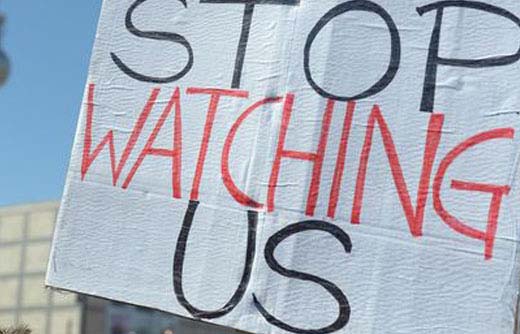Privacy is a hot ticket in today’s tech industry. Unfortunately, so is your data. How can we know who’s cutting corners on security, or who’s simply selling your browsing history to the highest bidder? Non-profits like the Electronic Frontier Foundation have done much to advocate for our rights as digital consumers, but what about the for-profits? Who’s actually got their own users’ best interests at heart, and not just their shareholders’?
We’ve compiled a list of 8 companies and industries that have gone the distance to protect your privacy, even when it’s not best for business.
8. Apple
***
Apple proved itself a leader in digital security in September of 2014 with iOS 8, perhaps the first major smartphone update to make the FBI publicly angry. That’s because the full-disk encryption on locked iPhones is so strong that Apple itself can’t crack it, even when police present them with a warrant. Since then, Apple has become entangled in legal battles with the Department of Justice. But CEO Tim Cook’s public opposition to government backdoors remains firm.
While other tech companies like Google and Facebook also maintain in their privacy policies that they won’t allow backdoors in their software, Apple seems to be the most tenacious advocate for privacy. Tim Cook has spoken publicly at conferences about the false dichotomy of privacy and national security: “We should be smart enough to do both. Both of these things are essentially part of the Constitution.”
7. Silent Circle
***
Whereas most “privacy tools” focus on software, Silent Circle has created a truly hardware privacy “tool” in its flagship product: the Blackphone, now in its second iteration. Besides encrypting all communications through its text and voice call apps, the Blackphone has unique memory chips that can be securely partitioned, allowing the user to keep work and personal “Spaces” protected from each other even at the most basic storage level. Silent Circle’s cryptography pedigree is strong; their founding team includes the legendary inventor one of the first email encryption protocols, as well as the author of Apple’s Whole Disk Encryption.
6. Telegram
***
Telegram is another encrypted chat platform created by Russian entrepreneurs Nikolai and Pavel Durov to protect their fellow citizens from government surveillance. Russian lawmakers recently called for a ban of the app after news that ISIS may have used it to coordinate terror attacks in Paris, prompting Pavel Durov’s sarcastic retort on social media: “I suggest we ban words. There’s been news that terrorists use them to communicate.”
5. SpiderOak
****
SpiderOak runs a cloud-based storage system with some serious street cred. Last year it got a very public nod from the ultimate digital privacy advocate Edward Snowden, who encouraged readers of The Guardian to forgo “hostile to privacy” Dropbox for zero-knowledge SpiderOak.
4. Wickr
****
Besides earning a perfect five stars in the 2015 EFF’s Who Has Your Back report for its first-rate privacy policy, Wickr’s secure chat app is protected by an incredible six layers of encryption. CEO Nico Sell has also proven her dedication to the future of digital security through her other project, r00tz Asylum, a non-profit school that teaches critical thinking to kids through white-hat hacking.
3. The VPN Industry
*****
The world of Virtual Private Networking, or VPN, has too many players to name just one, but it’s also too important not to mention here.
Encrypting your Internet traffic and routing it through a VPN tunnel used to be Snowden-level opsec, but a growing number of VPN providers have made it one-click easy. VPNs are used by thousands of people in countries where governments censor news and social media, making it one of the most popular gadgets on the Internet freedom utility belt.
Caveat emptor: many services that call themselves VPN providers—especially the “free” ones—actually log your data for their own profit, the antithesis of what a privacy tool should do. Look for a VPN provider with a strict no-logging policy stated clearly in their terms of use documentation. Many legitimate VPN providers will also make it a point to advocate publicly for digital privacy or contribute to non-profits like the Electronic Frontier Foundation and Access.
2. Open Whisper Systems
*****
Open Whisper Systems founder Moxie Marlinspike, famous for making a Johns Hopkins cryptography professor literally drool over his code, is an overachiever when it comes to improving digital security for the masses. The encryption scheme he created is now standard on WhatsApp, the most popular messaging app in the world. Marlinspike’s current project Open Whisper Systems, which makes the Snowden-recommended app Signal, is less corporate. They’re committed to open source software and refuse VC capital to avoid conflict of interest.
1. Ind.ie
*****
Aral Balkan, the driving force behind Ind.ie, is an extremely vocal activist for digital rights and Internet freedom. (Don’t miss his compelling talk Free is a Lie from the 2014 TNW Conference.) Like Open Whisper Systems, Ind.ie doesn’t take venture capital. Their secure chat app Heartbeat isn’t quite finished yet, but they are setting the standards and frameworks for how a privacy-conscious company should operate.


Recent Comments